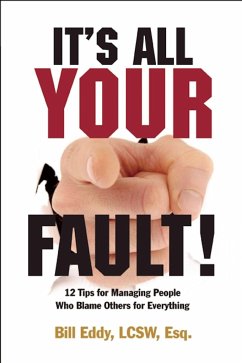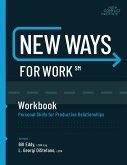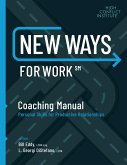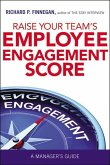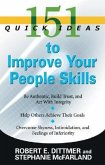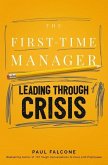- Broschiertes Buch
- Merkliste
- Auf die Merkliste
- Bewerten Bewerten
- Teilen
- Produkt teilen
- Produkterinnerung
- Produkterinnerung
Explains in easy-to-understand terminology, the behaviors of people with personality disorders or with traits, particularly blaming, irrational and impulsive behaviors.
Andere Kunden interessierten sich auch für
![New Ways for Work: Workbook New Ways for Work: Workbook]() Bill EddyNew Ways for Work: Workbook14,99 €
Bill EddyNew Ways for Work: Workbook14,99 €![New Ways for Work: Coaching Manual New Ways for Work: Coaching Manual]() Bill EddyNew Ways for Work: Coaching Manual18,99 €
Bill EddyNew Ways for Work: Coaching Manual18,99 €![The Transformative Negotiator The Transformative Negotiator]() Michèle HuffThe Transformative Negotiator16,99 €
Michèle HuffThe Transformative Negotiator16,99 €![Raise Your Team's Employee Engagement Score Raise Your Team's Employee Engagement Score]() Richard FinneganRaise Your Team's Employee Engagement Score14,99 €
Richard FinneganRaise Your Team's Employee Engagement Score14,99 €![151 Quick Ideas to Improve Your People Skills 151 Quick Ideas to Improve Your People Skills]() Robert E Dittmer151 Quick Ideas to Improve Your People Skills14,99 €
Robert E Dittmer151 Quick Ideas to Improve Your People Skills14,99 €![Angry Men: Managing Anger in an Unforgiving World Angry Men: Managing Anger in an Unforgiving World]() Lynne McclureAngry Men: Managing Anger in an Unforgiving World20,99 €
Lynne McclureAngry Men: Managing Anger in an Unforgiving World20,99 €![The First-Time Manager: Leading Through Crisis The First-Time Manager: Leading Through Crisis]() Paul FalconeThe First-Time Manager: Leading Through Crisis21,99 €
Paul FalconeThe First-Time Manager: Leading Through Crisis21,99 €-
-
-
Explains in easy-to-understand terminology, the behaviors of people with personality disorders or with traits, particularly blaming, irrational and impulsive behaviors.
Hinweis: Dieser Artikel kann nur an eine deutsche Lieferadresse ausgeliefert werden.
Hinweis: Dieser Artikel kann nur an eine deutsche Lieferadresse ausgeliefert werden.
Produktdetails
- Produktdetails
- Verlag: High Conflict Institute Press
- Seitenzahl: 368
- Erscheinungstermin: 21. Februar 2012
- Englisch
- Abmessung: 228mm x 154mm x 22mm
- Gewicht: 522g
- ISBN-13: 9781936268023
- ISBN-10: 1936268027
- Artikelnr.: 44974827
- Herstellerkennzeichnung
- Libri GmbH
- Europaallee 1
- 36244 Bad Hersfeld
- gpsr@libri.de
- Verlag: High Conflict Institute Press
- Seitenzahl: 368
- Erscheinungstermin: 21. Februar 2012
- Englisch
- Abmessung: 228mm x 154mm x 22mm
- Gewicht: 522g
- ISBN-13: 9781936268023
- ISBN-10: 1936268027
- Artikelnr.: 44974827
- Herstellerkennzeichnung
- Libri GmbH
- Europaallee 1
- 36244 Bad Hersfeld
- gpsr@libri.de
Bill Eddy is a lawyer, therapist, mediator and the President of High Conflict Institute. He developed the "High Conflict Personality" theory (HCP Theory) and has become an international expert on managing disputes involving high-conflict personalities and personality disorders. He provides training on this subject to lawyers, judges, mediators, managers, human resource professionals, businesspersons, healthcare administrators, college administrators, homeowners’ association managers, ombudspersons, law enforcement, therapists and others. He has been a speaker and trainer in over 25 states, several provinces in Canada, Australia, France and Sweden. As an attorney, Bill is a Certified Family Law Specialist in California and the Senior Family Mediator at the National Conflict Resolution Center in San Diego. Prior to becoming an attorney in 1992, he was a Licensed Clinical Social worker with twelve years’ experience providing therapy to children, adults, couples and families in psychiatric hospitals and outpatient clinics. He has taught Negotiation and Mediation at the University of San Diego School of Law for six years and he is on the part-time faculty of the Straus Institute for Dispute Resolution at the Pepperdine University School of Law and the National Judicial College.
Introduction
PART I: Understanding High Conflict People
Tip #1: Don't Take Their Personal Attacks
Personally
Tip #2: Don't Give Them Negative Feedback
Tip #3: Don't Bend Boundaries With Borderlines
Tip #4: Don't Diss the Narcissists
Tip #5: Don't Get Hooked by Histrionics
Tip #6: Don't Get Conned by Antisocials
Tip #7: Don't Be a Negative Advocate
PART II: Handling High Conflict People
Tip #8: Connect Using Your E.A.R.
Tip #9: Analyze Your Realistic Options
Tip #10: Respond Quickly to Misinformation
Tip #11: Set Limits on Misbehavior
Tip #12: Choose Your Battles
Conclusion
Glossary
References
About the Author
PART I: Understanding High Conflict People
Tip #1: Don't Take Their Personal Attacks
Personally
Tip #2: Don't Give Them Negative Feedback
Tip #3: Don't Bend Boundaries With Borderlines
Tip #4: Don't Diss the Narcissists
Tip #5: Don't Get Hooked by Histrionics
Tip #6: Don't Get Conned by Antisocials
Tip #7: Don't Be a Negative Advocate
PART II: Handling High Conflict People
Tip #8: Connect Using Your E.A.R.
Tip #9: Analyze Your Realistic Options
Tip #10: Respond Quickly to Misinformation
Tip #11: Set Limits on Misbehavior
Tip #12: Choose Your Battles
Conclusion
Glossary
References
About the Author
Introduction
PART I: Understanding High Conflict People
Tip #1: Don't Take Their Personal Attacks
Personally
Tip #2: Don't Give Them Negative Feedback
Tip #3: Don't Bend Boundaries With Borderlines
Tip #4: Don't Diss the Narcissists
Tip #5: Don't Get Hooked by Histrionics
Tip #6: Don't Get Conned by Antisocials
Tip #7: Don't Be a Negative Advocate
PART II: Handling High Conflict People
Tip #8: Connect Using Your E.A.R.
Tip #9: Analyze Your Realistic Options
Tip #10: Respond Quickly to Misinformation
Tip #11: Set Limits on Misbehavior
Tip #12: Choose Your Battles
Conclusion
Glossary
References
About the Author
PART I: Understanding High Conflict People
Tip #1: Don't Take Their Personal Attacks
Personally
Tip #2: Don't Give Them Negative Feedback
Tip #3: Don't Bend Boundaries With Borderlines
Tip #4: Don't Diss the Narcissists
Tip #5: Don't Get Hooked by Histrionics
Tip #6: Don't Get Conned by Antisocials
Tip #7: Don't Be a Negative Advocate
PART II: Handling High Conflict People
Tip #8: Connect Using Your E.A.R.
Tip #9: Analyze Your Realistic Options
Tip #10: Respond Quickly to Misinformation
Tip #11: Set Limits on Misbehavior
Tip #12: Choose Your Battles
Conclusion
Glossary
References
About the Author

